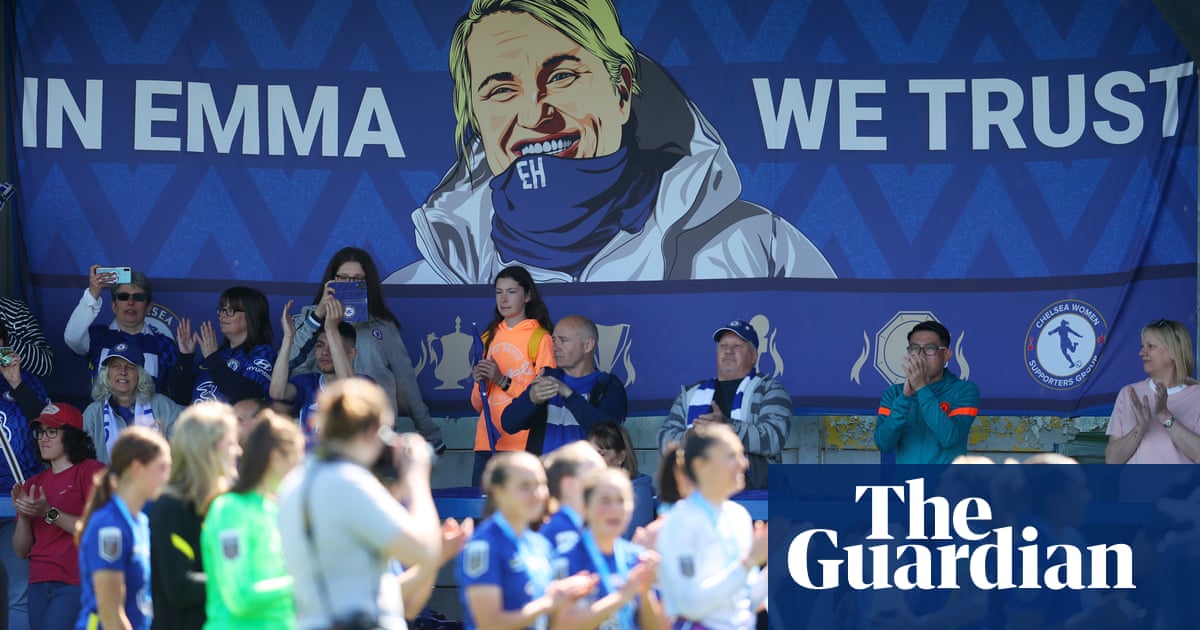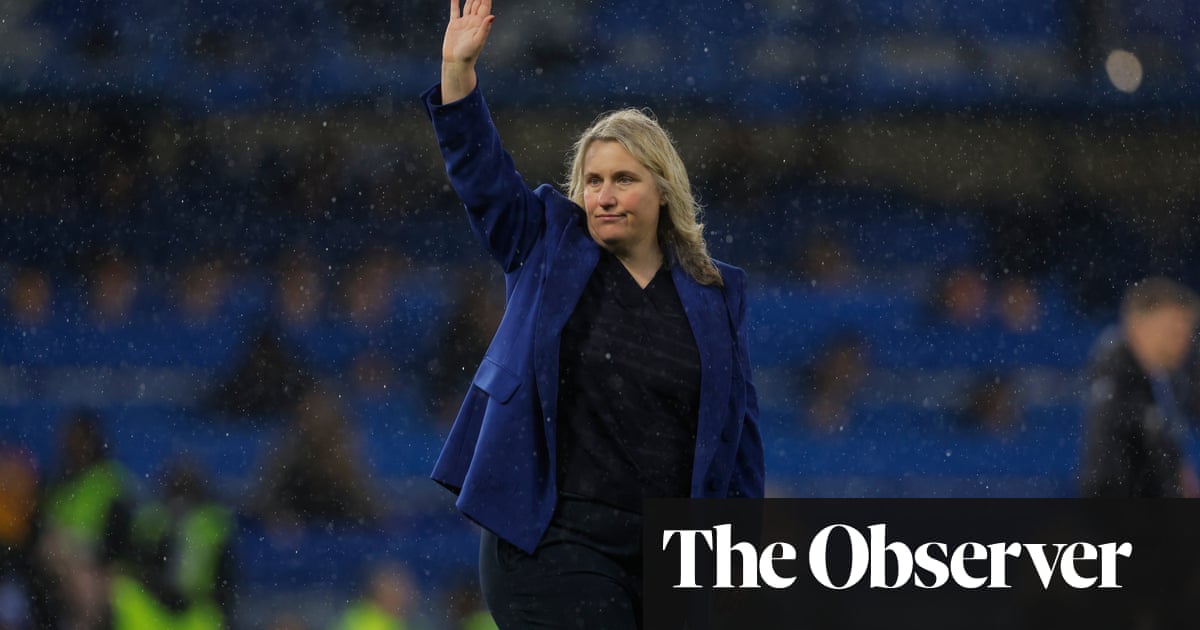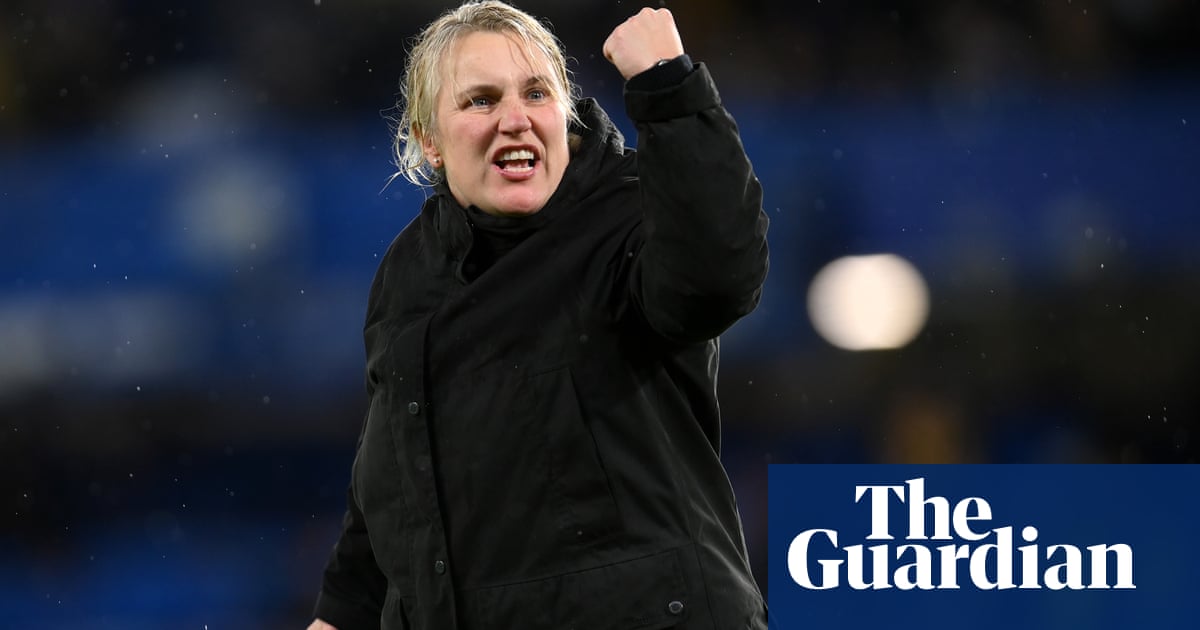
This time last year Emma Hayes’s relationship with international football was very different. Her face adorned ITV’s posters promoting its commentary team for the broadcaster’s coverage of the Women’s World Cup in Australia and New Zealand. The decorated Chelsea manager, celebrated for her astute technical analysis at both men’s and women’s major tournaments, was on a break from the day-to-day grind of club football management.
The dismal showing of the back-to-back world champions, the USA, was picked apart by Hayes on screen and in print. Youth development in the US was criticised, a lack of creative talent coming through pinpointed as a key issue, and the togetherness of the team was questioned.
A year on Hayes is having to convert those critiques into an action plan that will be immediately tested as the US bid to win their fifth Olympic gold and a first since the London 2012 Games. Hayes announced in early November last year she was leaving Chelsea at the end of the season. A few days later came the announcement that she would take the reins of the US women’s national team.
The 47-year-old’s decision to leave Chelsea and take on arguably the biggest job in women’s football, replacing the disappointing tenure of former Reign FC manager Vlatko Andonovski as head coach of the US women’s national team, was bold but not unexpected. The timing of the announcement that she would be leaving Chelsea was a shock though, hurried out shortly after a 6-0 Women’s Super League win over Aston Villa in November.
However, for those who have followed Hayes in recent years it had felt like her time at the club would be drawing to a natural conclusion sooner or later. Only the Champions League eluded Hayes during her time with Chelsea and there was a feeling, among fans and journalists alike, that were she to get her hands on a European title it would likely be her last hurrah with the club. The 4-0 defeat to Barcelona in the final in 2021 punctured the dream ending and, since then, while Chelsea have fought valiantly, the gap between them and the new queens of Europe has remained.
Hayes has also suffered huge personal trauma and change in the last five years, including the loss of one of the twins she was carrying, the birth of son Harry, an emergency hysterectomy as part of her battle with endometriosis, and the loss of her father.
These events have taken their toll. She has barely paused for breath, let alone to mourn her losses, making the less intensive day-to-day schedule of international football a huge pull.
She also knows the soccer culture stateside well, having left England for the US in search of an environment that gave a damn about women’s football early in her coaching career.
What should we expect from a Hayes-led USWNT at the Paris Games? It is hard to say.
She arrived in the US towards the end of May, shortly after Chelsea secured their seventh league title on the final day of the WSL season and has not had much time to mould the team in person. In many respects, that lifts the pressure a little – Hayes is a hire for the long term and short-term success will be desired but is unlikely to be viewed as essential as long as fans and those around her can see potential in the systems and personnel.
Already Hayes has shown she can be ruthless, omitting the figurehead Alex Morgan from the 18-player squad, the 34-year-old forward sacrificed to make way for younger players who will probably be the future of the team.
Hayes can do that. Her incredible track record in club football gives her the authority. Now we get to see whether she can take a team known for their transitional, intense and physical game and prepare them for facing the increasingly technical and tactical football being played by teams around the world.












